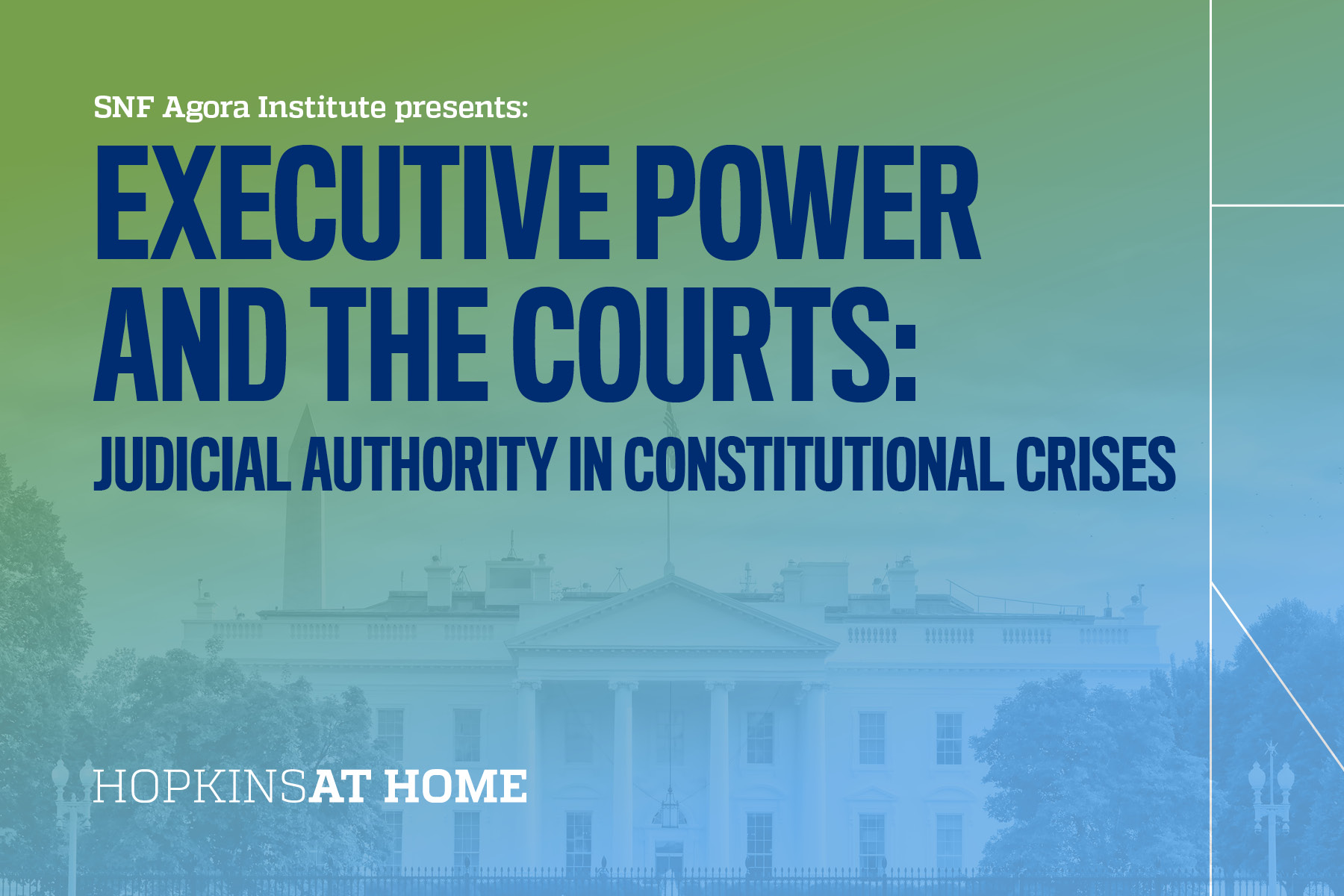Executive Power and the Courts: Judicial Authority in Constitutional Crises

• Presented by Hopkins at Home, The SNF Agora Institute at Johns Hopkins University, and the Alumni in Government, Academia, Law & Policy Community •
• Featuring Richard H. Pildes and Emily Zackin, moderated by Mary Bruce •
How do courts respond to executive power, and what powers does the judicial branch have to enforce their rulings? Learn the answers to these questions and more from Richard H. Pildes, Sudler Family Professor of Constitutional Law at NYU School of Law, and a frequent commentator on law’s role in democracy, including the recent essay, “This is What the Courts Can Do if Trump Defies Them." He’ll be joined by Emily Zackin, Assistant Professor of Political Science at Johns Hopkins University and author of Looking for Rights in All the Wrong Places: Why State Constitutions Contain America’s Positive Rights. Together they will examine the constitutional tensions between the branches of government in our current political moment and the implications for contemporary challenges to judicial authority. Moderated by Mary Bruce, Assistant Director of Public Programs, of Johns Hopkins SNF Agora Institute.
This event is part of our series "First 100 Days, From Home to Abroad," examining the effects of U.S. presidential leadership across the U.S. and beyond. The series is organized by the SNF Agora Institute at Johns Hopkins in partnership with the SNF Paideia Program at the University of Pennsylvania and the SNF Ithaca Initiative of the University of Delaware's Joseph R. Biden Jr. School of Public Policy & Administration.

